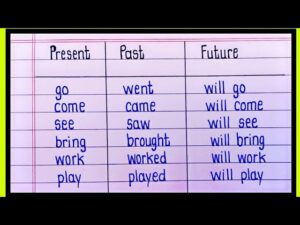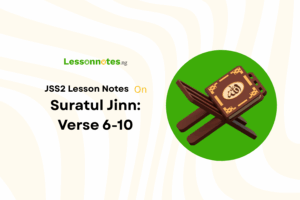Introduction To Sequence Of Tenses SS2 English Studies Lesson Note
Download Lesson NoteTopic: Introduction To Sequence Of Tenses
We use tense to indicate the time of verbs in the sentence. In order words, tense is used to show what time the verb of the sentence refers to. It may show whether an action, event, or state is in the past, present, or future. Consider these conversations:
A: Where does she live?
B: She lives with relatives close to her workplace.
C: She is presently living with her aunt close by.
In speaking or writing, the rules governing tenses have to do with paying particular attention to the verb sequence of your clauses and sentences to determine when an action takes place. For instance, an action in the future obviously cannot happen before an action in the past. The past must come before the present, and the present before the future.
For example:
- The man was begging because he had nothing left.
- The robbers absconded after robbing the neighbourhood.
There are three main verb tenses in English. The present tense, past tense, and future tense.

- Present Tense: The present tense is mostly used to express habitual actions, i.e. an action that happened in the past, maybe happening now and will happen in the future. It also expresses statements of facts. E.g:
- Dogs eat
- Oil floats on water.
- The sun rises in the east and sets in the north.
- Past Tense: The past tense implies that an action happened in the past and was completed in the past. It is also used to describe a past habitual event that is no longer occurring. E.g:
- The dogs ate his bone.
- The plane left Lagos airport at eleven o’clock last week Friday.
- She broke her wrist during her gymnastic training.
- Future Tense: The future tense is used to express an action that is expected to happen in the future. It is often introduced by the auxiliary verb will, may, shall etc. E.g:
- Now that you have a large firm, you will need
- I will see you at school tomorrow.
- I may decide to come over to your place next week.
ASSIGNMENT
Write down five more examples each on the tenses of the verb discussed today.
WORDS FOR THE WEEK
Propriety, Preclusive, Canvas, Exigent, Requisition, Carouse, Forestall, Tranquil, Heterogenous, Unctuous






















